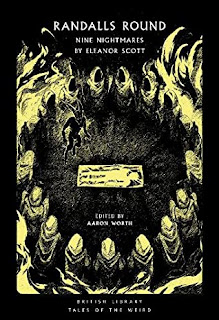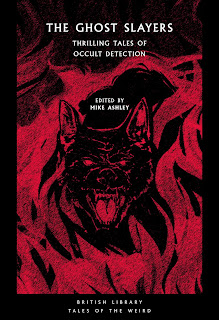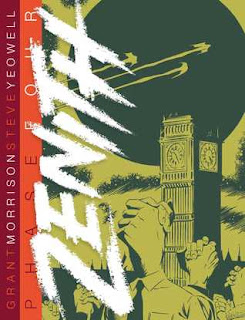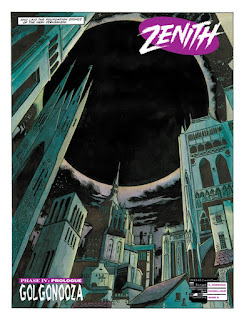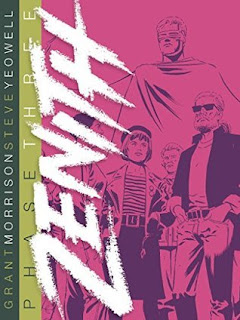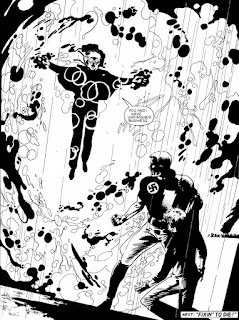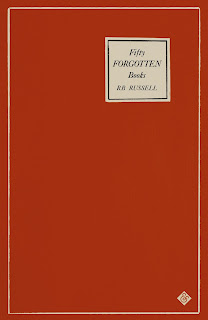Grant Morrison - writer
Steve Yeowell - artist
RebellionBerlin, 1945: The
allies unleashed the second world war hero Maximan upon the German
supersoldier Masterman. Maximan’s defeat was only kept secret by the
nuclear bomb which destroyed both men. Forty-plus years later, and
twenty years after a generation of ’60s British superpowered heroes came
and went, the teenage pop star Zenith is the only superhuman left – and
his only interest in women, drugs, alchohol and fame.
So when he
is contacted about the threat from the many-angled ones and the
impending destruction of our world, his first reaction is to steer well
clear.But the superhumans of the past have other plans.
Back in 87/88 when Zenith was first published I was an intermittent reader of 2000AD. I was working in a comic shop and occasionally flipping through the one copy that was ordered through us so I was aware of Zenith but having read this first of four stunning, large format, hardback reprints I think I only ever read the very first episode, at least from this first story arc.
Zenith is a pop star superhero. The only active superhero in the world following the deaths of the original WWII era superpowered pair and the disappearence and retirement of those active in the 1960s. He's a party brat, selfish and hedonistic only drawn into any actual heroics by the return of the original Nazi Ubermensch powered by the 'Many-Angled Ones', dark gods from another dimension.
What we see at this early point in the story is Morrison playing around with the same sort of ideas of reinventing superheroes as many of his peers were at the time but, as would continue to be the case throughout his career, doing so with a lot more affection for the genre than was perhaps more often the case at the time with those others.
Partnered with Morrison here is the brilliant Steve Yeowell which means that along with the transdimensional storyline the book has a very strong feel of kinship to the pairs brilliant 'The Invisibles'. Yeowell is a beautifully delicate artist with the ability to give his characters depth and weight and a sense of realness even in the most ludicrous of situations and, as you can see in the image above above a fantastic flair for the dynamic and the dramatic.
So, this first book, despite being all wrapped up a tad too quickly and neatly it all made for a very satisfying read and I head onwards to book two with high expectations.
..........................................................................................
If
you enjoy what we do here on Wyrd Britain and would like to help us
continue then we would very much welcome a donation towards keeping the
blog going - paypal.me/wyrdbritain
Affiliate links are provided for your convenience and to help mitigate running costs.
 Made in 2000 two years after he published his book of the same name this film finds Julian Cope back on the road again visiting some of his favourite prehistoric sites.
Made in 2000 two years after he published his book of the same name this film finds Julian Cope back on the road again visiting some of his favourite prehistoric sites.

